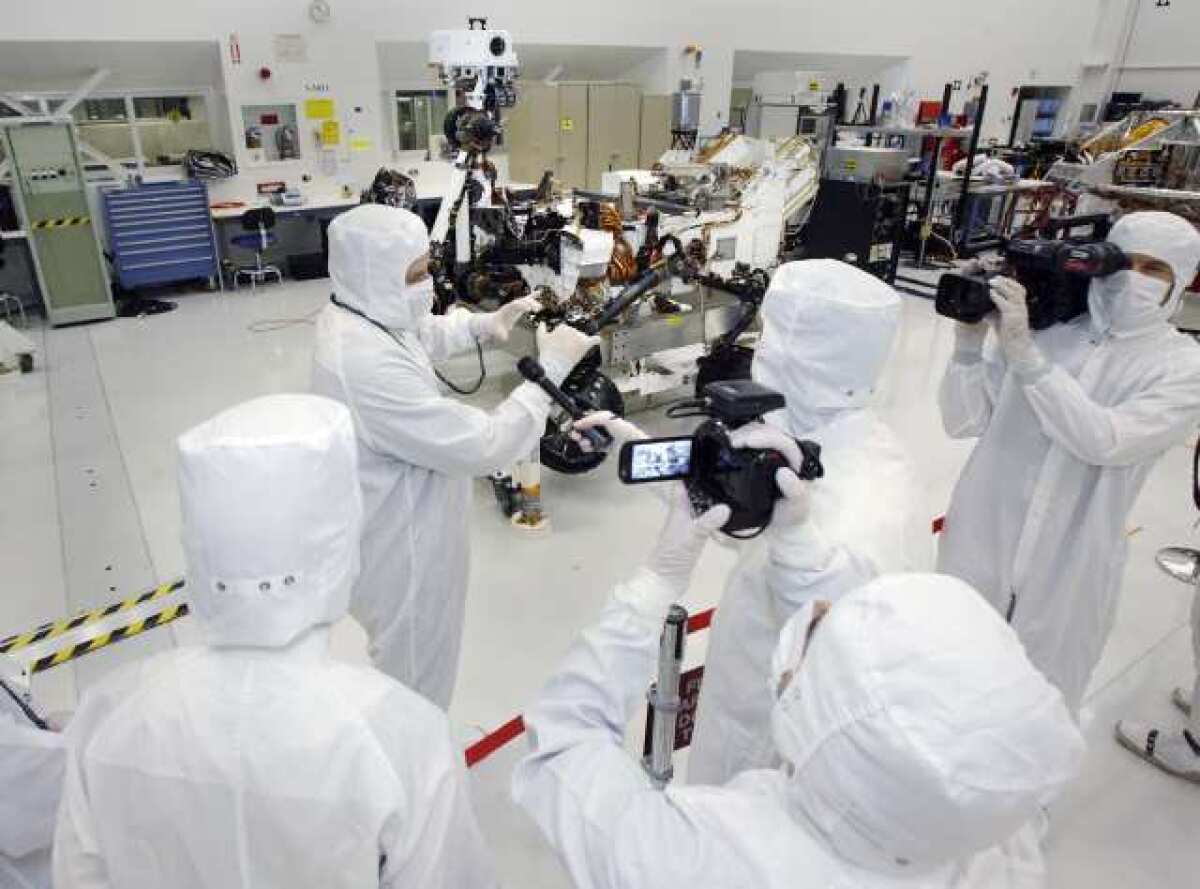Judge rules in favor of JPL scientists disciplined for emails sent from work accounts

Scientists and engineers from NASA’s Jet Propulsion Laboratory were unfairly disciplined for sending emails about a U.S. Supreme Court decision involving background checks at the agency, a judge has ruled.
The ruling comes after the JPL employees challenged being disciplined for using their work email accounts to disseminate information to colleagues about the 2007 Supreme Court decision upholding federal background checks for scientists.
JPL administrators said using work email accounts for such purposes violated employee policy. But an administrative judge for the National Labor Relations Board last week ruled that the space agency was selectively enforcing the rule, and that the right to send the information was protected.
Current and former employees of the La Cañada Flintridge facility who testified during the case in January called the decision a victory.
“Judge [William] Kocol has issued a powerful and eloquent condemnation of JPL’s unjustified discipline and attempt to stifle appropriate employee concerted action,” said Dennis V. Byrnes, a former JPL engineer, in a statement. “I thoroughly and carefully read and understood JPL’s policies before I consulted with my fellows and considered sending my email.”
The decision will be reviewed by the board, which usually upholds the judge’s orders unless an appeal is brought forward. In a statement Monday, attorneys for Caltech — which holds the contract to manage JPL for NASA — said they intend to appeal.
The battle between JPL and a group of scientists and engineers began in 2007, when the lab told current employees that they would have to undergo a background check under a Homeland Security directive in order to retain their job.
Byrnes was part of a group of 28 employees who filed a lawsuit asking NASA to change its policies regarding the collection of personal information for contract employees — including inquiries about employees’ sexual and financial history — which they described as invasive.
The employees won a temporary injunction in the U.S. 9th Circuit Court of Appeals, which the Supreme Court reversed in 2011. JPL notified employees of the decision, but the group felt that the summary left out important details, so Byrnes and four others sent out mass emails of their own.
During the trial in January, Cozette Hart, JPL’s director of human resources, said the disciplined employees were lobbying for support in their emails for NASA to change its policy on background checks. But in his decision, Kocol said that kind of activity is protected.
The messages, he wrote, “went only to persons who, for the most part, might be impacted by the change of badging requirements, they highlight the pervasive nature of the new badging requirements on JPL’s work force.”
He noted that JPL allowed communication about other non-work-related topics, such as Girl Scout cookies, lunch specials and donations to nonprofit organizations.
Kocol ordered the lab to remove any references that the employees received written warnings from its files and post a notice reminding workers of their right to organize.
--
Follow Tiffany Kelly on Google+ and on Twitter: @LATiffanyKelly.